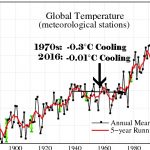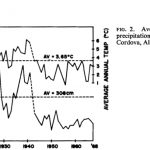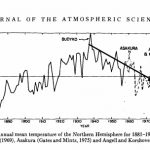G.A. Hodgkins et al., Climate-driven variability in the occurrence of major floods across North America and Europe, Journal of Hydrology, Volume 552, September 2017, Pages 704-717
Abstract
Concern over the potential impact of anthropogenic climate change on flooding has led to a proliferation of studies examining past flood trends. Many studies have analysed annual-maximum flow trends but few have quantified changes in major (25–100 year return period) floods, i.e. those that have the greatest societal impacts. Existing major-flood studies used a limited number of very large catchments affected to varying degrees by alterations such as reservoirs and urbanisation. In the current study, trends in major-flood occurrence from 1961 to 2010 and from 1931 to 2010 were assessed using a very large dataset (>1200 gauges) of diverse catchments from North America and Europe; only minimally altered catchments were used, to focus on climate-driven changes rather than changes due to catchment alterations. Trend testing of major floods was based on counting the number of exceedances of a given flood threshold within a group of gauges. Evidence for significant trends varied between groups of gauges that were defined by catchment size, location, climate, flood threshold and period of record, indicating that generalizations about flood trends across large domains or a diversity of catchment types are ungrounded. Overall, the number of significant trends in major-flood occurrence across North America and Europe was approximately the number expected due to chance alone. Changes over time in the occurrence of major floods were dominated by multidecadal variability rather than by long-term trends. There were more than three times as many significant relationships between major-flood occurrence and the Atlantic Multidecadal Oscillation than significant long-term trends. […]






